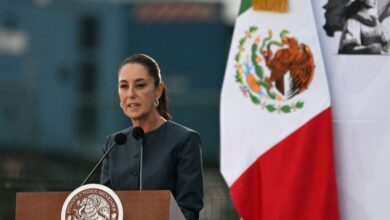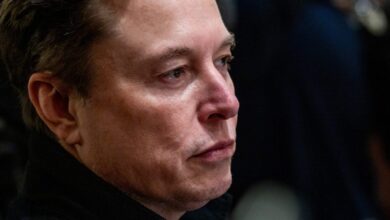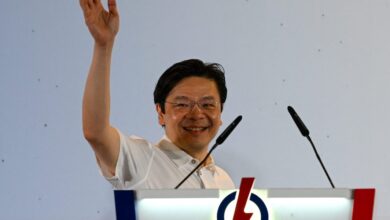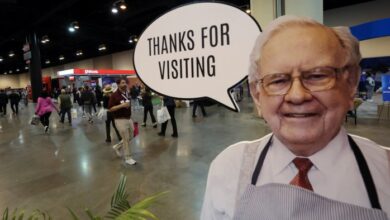Tariff deals with foreign governments not a priority for Donald Trump, say US officials
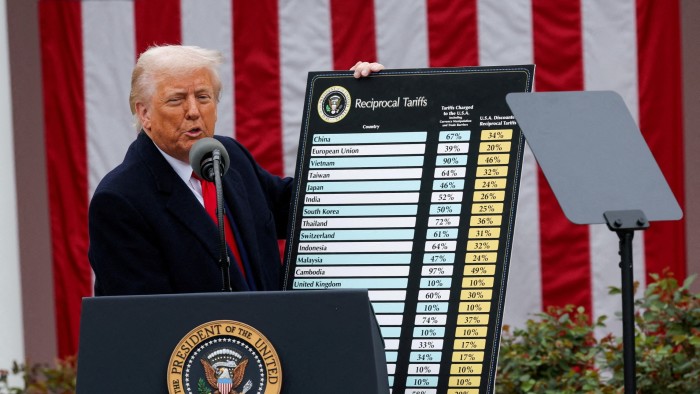
In the weeks leading up to Donald Trump’s “liberation day”, diplomats and foreign officials streamed through Washington to secure the holy grail: a deal the president could not refuse, and one that would spare them his tariffs.
None succeeded. Trump used rarely-invoked emergency powers to unleash tariffs of between 10 per cent and 50 per cent against almost every country in the world, taking aim at a global trading system that he said had “ripped off” the US for decades.
Now the world is asking whether he wants to retain the tariffs or is just looking to negotiate — a question that has become increasingly urgent with the steep drop in global equity markets in the wake of Trump’s announcement.
But two days after the president announced his wide-ranging tariffs in the White House rose garden, US officials are signalling that deals with foreign governments are not his priority, despite Trump speaking with Vietnam’s leader, To Lam, on Friday.
Trump described his first call with a foreign leader since Wednesday’s announcement “productive”, after Lam offered to cut Hanoi’s tariffs on US goods to zero.
But White House officials cautioned the president’s openness to “picking up the phone” to a foreign leader should not be confused for serious negotiations that would lead to tariffs being lowered.
The White House was focused on implementing the levies, they added, suggesting Washington will set a high bar for any agreement to ease the measures.
“President Trump is always willing to take a phone call from a foreign leader and discuss possible deals, but it is not a negotiation until it’s a negotiation,” said one White House official.
Earlier in the day, Trump appeared to double down on his grand tariffs, despite triggering the worst Wall Street rout since the 2020 Covid-19 crisis.
“TO THE MANY INVESTORS COMING INTO THE UNITED STATES AND INVESTING MASSIVE AMOUNTS OF MONEY, MY POLICIES WILL NEVER CHANGE,” Trump posted on his Truth Social platform. “THIS IS A GREAT TIME TO GET RICH, RICHER THAN EVER BEFORE!!!”
Officials have been at pains to convey that the tariffs — applied using the US’s International Emergency Economic Powers Act — were a response to decades of alleged unfair trade practices by Washington’s major partners and allies, and are designed to reshore US manufacturing and boost American jobs.
“This is not a negotiation,” a senior White House official said on Wednesday. “It’s a national emergency.”

One person familiar with the administration’s thinking said Trump understood that to lure companies into moving their manufacturing operations to the US, the tariffs would need to be permanent. “Companies need certainty that this is the new policy environment,” the person said.
The White House official said the US was not talking to other countries about “specific concessions”. “The thing we are looking at is trade deficits,” they said.
Scott Bessent, the US Treasury secretary, on Friday dismissed the potential for quick negotiations with top trading partners to reduce the levies.
“I think what’s going to be more important than the discussion with countries is the discussion with companies,” Bessent said in an interview with Tucker Carlson, the rightwing media host, that was broadcast on Friday.

Bessent’s attempts to soothe markets have been limited to statements he made previously that tariffs would only increase for countries that retaliated against the US trade measures — and otherwise this week’s levies would be the upper limit.
Beijing on Friday responded to the US putting additional tariffs of 34 per cent on Chinese imports with its own countermeasure of a 34 per cent tariff on all US imports to China.
Trump took to social media to express his ire. “CHINA PLAYED IT WRONG, THEY PANICKED — THE ONE THING THEY CANNOT AFFORD TO DO!,” he wrote on Truth Social.
Bessent told Carlson the “dream scenario” would be a big bargain in which Beijing rebalanced its economic model, but warned that would not happen “in a month” but “over the next few years, they may have to come around”.
He added: “The Europeans go kicking and screaming, but I think they’re going to have to rebalance too.”
The messaging has not stopped diplomats and business figures from trying to reach the president in recent days.
The top EU’s trade diplomat, Maroš Šefčovič, spoke with US commerce secretary Howard Lutnick and US trade representative Jamieson Greer on Friday. Šefčovič told them the bloc was “committed to meaningful negotiations”, according to a readout of the meeting.
Everett Eissenstat, a former trade official in Trump’s first stint in the White House and a partner at Squire Patton Boggs, believes the president is open to striking deals.
But he cautioned: “I also think at the end of the day that tariffs will be higher, so we’ll probably end up in a very unique President Trump way, with a universal tariff that has negotiating flexibility.”
https://www.ft.com/__origami/service/image/v2/images/raw/https%3A%2F%2Fd1e00ek4ebabms.cloudfront.net%2Fproduction%2F9810bffc-c73f-4f7c-8a74-839c349a8840.jpg?source=next-article&fit=scale-down&quality=highest&width=700&dpr=1
2025-04-05 12:00:38

